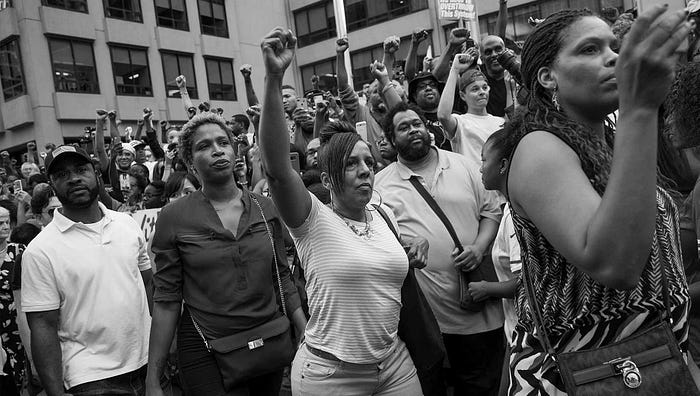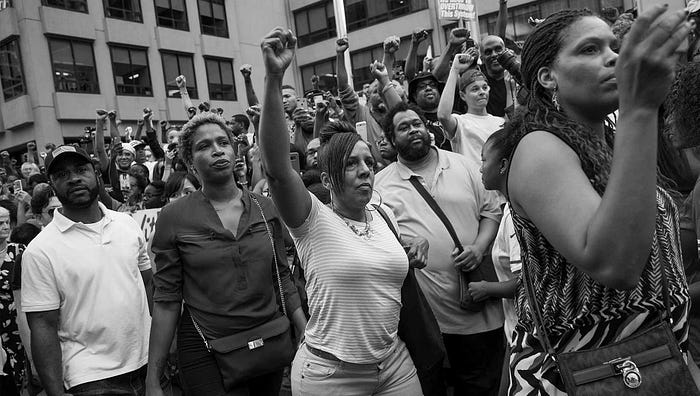In a unanimous vote of 7–0, the city of Asheville, N.C. voted during a council meeting on July 14th approving a reparations resolution for Black residents which account for 12 percent of the city — 83 percent of the city is white

Apologizing for its role in slavery, the city of Asheville approved the resolution for reparations which will not include direct financial restitution as it has for Native Americans, and Jewish people as a result of the Holocaust.
It will not include the 40 acres and a mule that was promised directly after slavery to Blacks in 1865 — and was never delivered, it will instead include a series of investments where “Black residents face disparities,” according to The resolution.
Read the resolution below:



It continues, “The resulting budgetary and programmatic priorities may include but not be limited to increasing minority home ownership and access to other affordable housing, increasing minority business ownership and career opportunities, strategies to grow equity and generational wealth, closing the gaps in health care, education, employment and pay, neighborhood safety and fairness within criminal justice.”
The problem with the resolution is the language. Investments, doesn’t give an exact amount. In reference to the Holocaust and the Jewish community, they were given the dignity of specific guidelines and parameters.
An agreement was signed in September 1952, and West Germany paid Israel a sum of 3 billion marks over the next fourteen years; 450 million marks were paid to the World Jewish Congress. The payments were made to the State of Israel as the heir to those victims who had no surviving family.
The Asheville resolution uses the language “may include” and “but not be” which could lead to speculation as to what will happen and does not provide a definite or deadline for any sort of change to happen.
Members of the council obviously got pushback from the resolution. Sheneika Smith, a Black member, said she’d gotten emails asking why the city should have to pay for what happened during slavery.
Her answer, “Slavery is this institution that serves as the starting point for the building of the strong economic floor for white America, while attempting to keep Blacks subordinate forever to its progress.”
In 2013, over 5000 Africans specifically in Kenya were compensated by the British government to the sum of $31 million for violence committed against them between 1952–1963 during the Mau-Mau Independence War.
A little over year ago when Rep. Sheila Jackson introduced to Congress, H.R. 40 — which is the Commission to Study and Develop Reparation Proposals for African-Americans Act, no one paid attention. New interest has sparked thanks to protests as a result of the murders of George Floyd, Breonna Taylor, and many more.
In July, a congressional Black Caucus press Conference took place to discuss the matter. Rep. Sheila Jackson presided and said systematic racism, “has been a cancer on the skin and the fabric of this nation that has not been remedied; it has only deepened.” Reparations, she said, are “the answer to the original sin.”
If reparations for Black slaves and their descendants were to have an exact number, what would that number be?

$13 trillion according to Duke University’s Mullen and Darity — both are historians and economists, respectively. This figure includes slavery and the racial oppression that would come after.
According to their calculations, an estimated 45 million Blacks could be eligible for reparations based on their enslaved ancestors — amounting to $300,000 to $350,000 per person. This, according to them would fix the wealth gap in racial disparity between Blacks and Whites within 10 years.
According to a recent poll published in June, organized by Reuters. Only 1 in 5 people (20 percent) agreed that the US should use taxpayer’s money to pay for reparations to Blacks.

